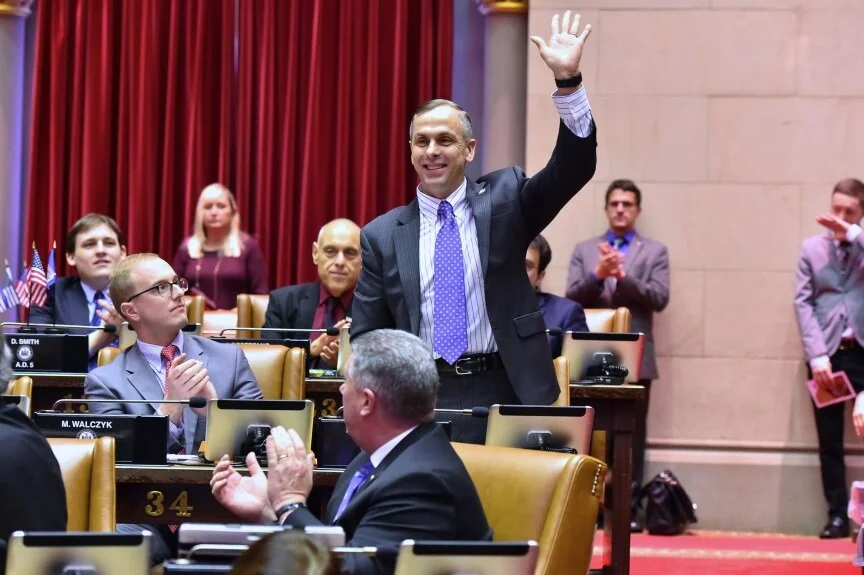Reexamining Critiques of NY’s "Free Tuition" Program By Luke Perry
Governor Andrew Cuomo premised the Excelsior Scholarship, New York’s recently adopted “free tuition” program for college and university students, on the belief that economically "the state with the most educated workforce is the state that is going to succeed long term.” The program strives to be a model for other states as the “first-in-the-nation legislation that will make college accessible, strengthen the middle class, and build a brighter future for all New Yorker's."
Students attending public colleges and universities will be eligible for free tuition if their family income is $100,000 or less, rising to $125,000 by 2019. Students must take thirty credits per year, maintain a grade point average necessary for the successful completion of their course work, and complete a residency requirement after graduation that mandates living in New York for the same number of years they received the scholarship.
These conditions are essentially the same as what Cuomo proposed in January, minus the residency requirement, a new addition at the urging of Republican legislators. Cuomo claims this is necessary to ensure the state receives a return on its investment.
Critics suggest this makes little economic sense and unfairly transforms a grant into a conditional loan. Other states, including Arkansas and Maine, have adopted various forms of residency requirements related to state aid. New York’s program is much bigger, but an estimated 84 percent of college and university graduates stay in state, potentially moderating the presumed impact.
Other critics point out that lodging is more expensive than tuition and the “last dollar” approach means the scholarship covers the difference after financial aid has been applied. Such an approach enables the cost of the program to remain a manageable $163 million a year, but differs from what Bernie Sanders and Hillary Clinton campaigned for, applying the scholarship prior to financial aid. As a result, middle and upper class families will benefit the most because low income students already received state and federal tuition assistance exceeding their tuition costs.
On the other hand, the program effectively expands tuition benefits well beyond low income people somewhat analogously to how Obamacare expanded Medicaid, a logic embraced by liberals. Similarly, Medicare for all, advocated for by Bernie Sanders, would benefit the middle class and above more than low income people. New York’s program could do more to help low income students in other ways, but it still is an advancement for addressing tuition related concerns.
Mostly absent in “free tuition” critiques is the impact on private colleges, a concept that encompasses various institutions, including religious and secular, enrollment driven schools and those with substantial endowments. Secular, enrollment driven private colleges, who in many ways resemble public institutions, will be negatively impacted by this program.
Commuters, for instance, particularly those who live at home, will be more likely to opt for public alternatives with no tuition, already not paying room and board. Any decrease in enrollment can have devastating effects for enrollment driven colleges. Elite private institutions with large endowments are important centers of learning, but not where these students would typically attend.
Enhancing the affordability of higher education is worthwhile policy; however, why and the how matter. There is little doubt Governor Cuomo is positioning himself for a presidential bid in 2020. His successful efforts in championing this bill required compromises that make the final outcome different than what liberals typically have in mind when thinking about investing in education. In some ways the law is not as bad as related criticism suggests. In other ways, it’s far worse.
Luke Perry (@PolSciLukePerry) is Professor and Chair of Government at Utica College.
The views expressed here are solely those of the author and in no way reflect those of his employer.





